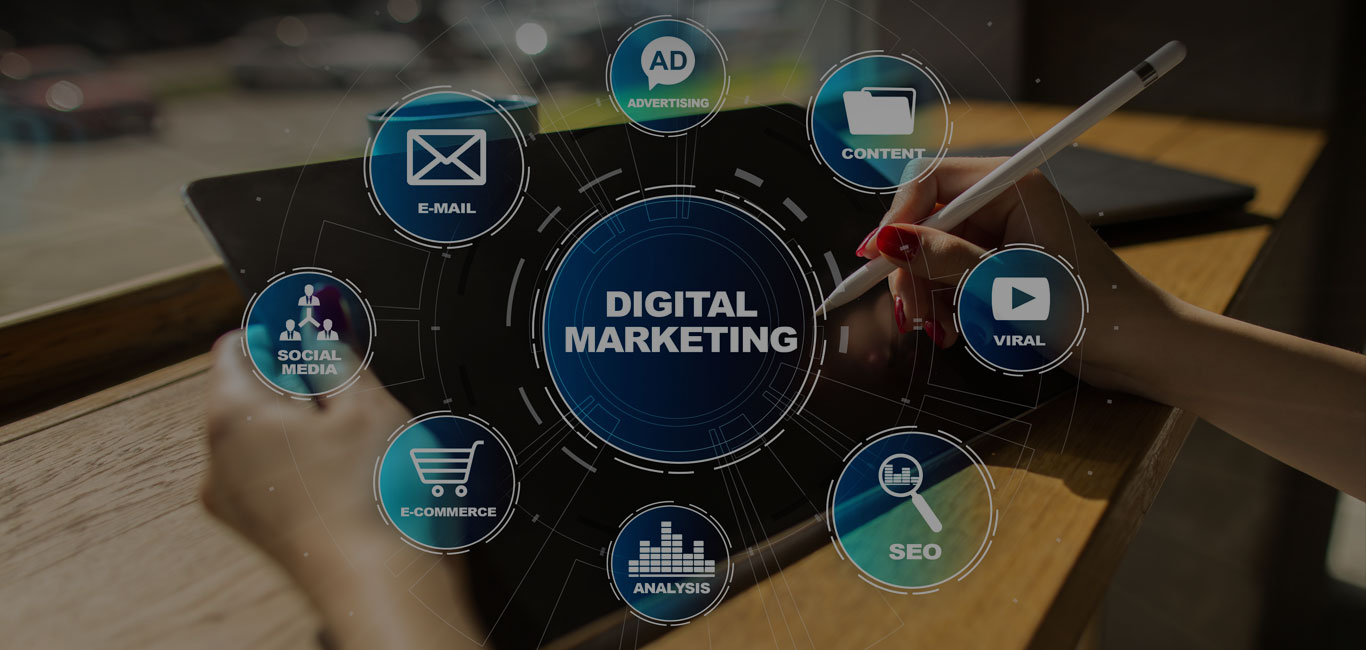Data is an important way of establishing what works from what doesn’t. It gives you knowledge. And knowledge is power. And power leads to success. So, it’s important to learn how to measure the success of digital marketing, so you can understand your KPIs and maximise your ROI.
It’s all very well devising a killer digital marketing strategy and investing a budget in your plan of action. Still, if you don’t know which activities are driving your success, you could be frittering your cash in the wrong areas.
The good news is digital marketing is much easier to measure than traditional marketing methods.
There are a number of tools available to track the KPIs of your campaigns, and metrics are in real-time, making them accurate and easily accessible.
Data can be easily extracted and converted into usable reports without having to undergo hours of data analysis. Compare this to the old-hat methods of analysing offline marketing data, such as telephone calls from print ads. Marketers might once have had to ask the caller where they saw the ad and manually record the data.
The downside to digital tools to track your marketing activity is that there are just so many tools available. These might vary depending on whether you are measuring traffic, conversions or revenue. Some tools also require a more technical level of understanding than others.
For the newbie to digital marketing, choosing the right tool can be overwhelming, so it’s worth looking around.
Google Analytics
A good all-round analytics tool to measure your activity coming via your website is Google Analytics. GA enables you to break down your traffic, conversions (goals) and revenue data by the medium.
Medium relates to the digital source, whether it be from social media (social), from people using search engines to find the services you offer (organic), from Google ads (PPC), from external ads or links on other websites (referral) and from visits to your site from people who know you (direct).
Google Analytics enables you to drill down further into each medium to examine user behaviour. If you’re keen to understand more about the demographic of the users from each medium, you can extract data reports based on location, sex, age and what device they are using.
Analysing demographic data means you can adapt your marketing messages to appeal to the right age group in the right area using a specific device.
You can also analyse the best time for a campaign to be successful by looking at when the most purchases are made.
Online campaigns, such as display ads, can be tracked by adding a tracking link to GA so you can filter this data and analyse the success of that individual campaign.
Google Analytics tracks the user journey on your site, so you can see where the use landed on your site, how long they spent there (a bounce back could indicate a problem with the page content) and where they navigated to after. This data helps you to improve your user experience, to maximise goal conversion.
Of course, other online activities don’t necessarily result in the user visiting your website, in which case additional tracking tools are useful. An example is your social media profiles. Sometimes users may call your business simply from seeing your brand on a social site such as Facebook or Twitter.
Role of Digital Marketing Agency
The good news is digital marketing is much easier to measure than traditional marketing methods. Unlike the ambiguous nature of traditional methods like billboards and TV ads, where tracking actual conversions can be a challenge, digital marketing offers direct insights into ROI. Every click, interaction, and conversion can be tracked and analyzed, making it a transparent and accountable form of marketing.
This is where award-winning digital marketing agency come into play. Such agencies have a proven track record of harnessing the power of online platforms to deliver tangible results. They utilize cutting-edge tools and technologies to track campaign performance, understand user behaviour, and optimize strategies in real-time. From SEO and PPC to content marketing and social media advertising, these agencies craft tailored strategies that align with a brand’s unique objectives.
Moreover, these digital marketing agencies understand the ever-evolving nature of the digital landscape. With constant updates to search algorithms, emerging social platforms, and changing consumer behaviours, what works today might be obsolete tomorrow. Award-winning digital marketing agencies stay ahead of these shifts, ensuring that their clients’ digital strategies are always at the forefront of innovation.
Additionally, they provide comprehensive reporting, giving businesses a clear picture of where their marketing budget is being spent and the results it’s yielding. This level of transparency builds trust and ensures that marketing efforts always align with overarching business goals.
As the digital realm becomes increasingly intricate, partnering with an award-winning digital marketing agency can be a game-changer. They not only demystify the complexities of the digital world but also drive measurable results, ensuring that every marketing dollar spent translates into meaningful business growth.
Social Media Metrics
Social media tools such as Hootsuite enable you to manage and integrate all your social media profiles. Hootsuite’s analytics function allows you to track brand sentiment and follower growth, plus incorporate Facebook Insights and Google analytics. A bit of a winner, really.
